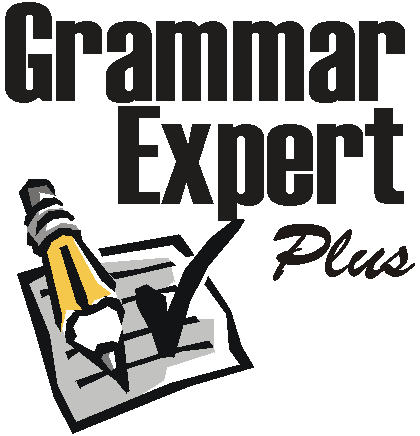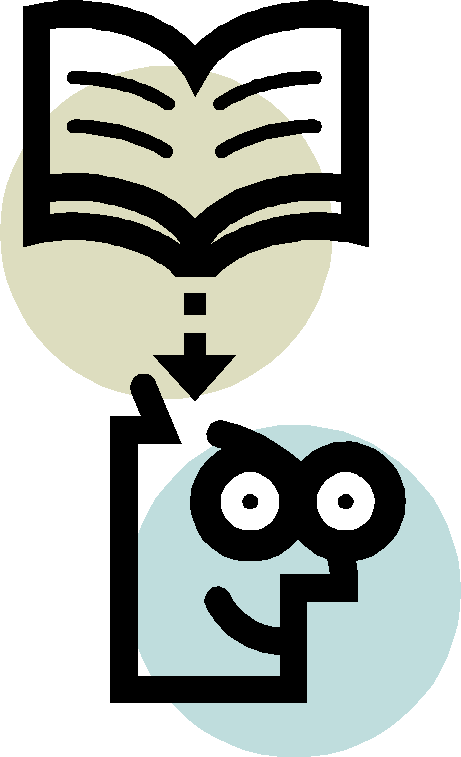
- •Учреждение образования
- •Часть II: конспект лекций; тренировочные задания и тесты по разделам; тексты для чтения и перевода; блоки контроля навыков и умений.
- •Содержание
- •Введение
- •Часть I:
- •Часть II:
- •Часть 1 пояснительная записка основные цели и задачи изучения дисцилины
- •Содержание учебной дисциплины
- •Методические указания по организации самостоятельной работы
- •Работа над лексикой
- •О пользовании словарем
- •О необходимости определения части речи незнакомого слова
- •Работа над грамматикой
- •Работа над текстом
- •Подготовка к зачёту и экзамену
- •Методические материалы по дисциплине основные учебники, учебные пособия, методические разработки
- •Дополнительная литература
- •Часть II
- •1. Модуль социального общения
- •1.1. Подмодуль социально-бытового общения Учебный блок 1.1.1
- •Инструкция к работе
- •Имя существительное (The Noun)
- •Классификация существительных
- •Левое определение, выраженное существительным
- •Артикль
- •Неопределенный артикль
- •Определенный артикль а) перед нарицательными существительными
- •Б) перед именами собственными
- •Отсутствие артикля
- •Местоимение
- •1, 2, 3. Личные, притяжательные и возвратно-усилительные местоимения.
- •8. Количественные местоимения
- •9. Неопределенные местоимения.
- •Числительное
- •Количественные числительные
- •Порядковые числительные
- •Дробные числительные
- •Чтение хронологических дат
- •Глагол to be
- •Глагол to have
- •Имя прилагательное
- •Префиксы
- •Суффиксы
- •От основы существительного:
- •От основы глагола:
- •Степени сравнения прилагательных
- •Сравнительные конструкции
- •Наречие
- •Наречия места
- •Наречия времени
- •Наречия образа действия
- •Наречия меры и степени
- •Формы наречий
- •Степени сравнения наречий
- •Текст “About my family and myself”
- •Текст “My Hobby”
- •Текст “Appearance”
- •Учебный блок 1.1.2
- •Инструкция к работе
- •Глагол (The Verb)
- •Четыре основные формы глагола
- •Настоящее неопределенное время (Present Indefinite/Simple)
- •Прошедшее неопределенное время (Past Indefinite/ Simple)
- •Будущее простое время (Future Simple/Indefinite)
- •Настоящее длительное время (Present Continuous)
- •Прошедшее длительное время (Past Continuous)
- •Будущее длительное время (Future Continuous)
- •Учебный блок 1.2.1
- •Инструкция к работе
- •Настоящее совершенное время (Present Perfect)
- •Прошедшее совершенное время (Past Perfect)
- •Будущее совершенное время (Future Perfect)
- •Настоящее совершенное длительное время (Present Perfect Continuous)
- •Прошедшее совершенное длительное время (Past Perfect Continuous)
- •Будущее совершенное длительное время (Future Perfect Continuous)
- •Modal Verbs (Модальные глаголы)
- •Они имеют следующие особенности:
- •Примеры употребления модальных глаголов
- •Учебный блок 1.2.2
- •Инструкция к работе
- •Страдательный залог(Passive Voice)
- •Сводная таблица спряжения глаголов в страдательном залоге
- •Перевод глаголов в форме Passive
- •Учебный блок 1.2.3
- •Инструкция к работе
- •Cогласование времен (Sequence of tenses)
- •Прямая и косвенная речь
- •Обращение прямой речи в косвенную Повествовательное предложение
- •Вопросительное предложение в косвенной речи
- •Повелительное предложение
- •Предлог (Preposition)
- •Место предлога в предложении
- •Предлоги места
- •Некоторые стандартные выражения с предлогом on:
- •Предлоги времени
- •Предлоги направления
- •Союз (Conjunction)
- •Сочинительные союзы
- •Подчинительные союзы
- •Союзные слова
- •1.3. Подмодуль социально-политического общения Учебный блок 1.3.1
- •Инструкция к работе
- •Неличные формы глагола (Non-Finite Forms of the Verb)
- •Инфинитив (The Infinitive)
- •Употребление частицы to с инфинитивом
- •Сложные формы инфинитива
- •Употребление различных форм инфинитива
- •Герундий (Gerund)
- •Перевод герундия
- •Функции герундия в предложении
- •Выбор между инфинитивом и герундием
- •Учебный блок 1.3.2
- •Инструкция к работе
- •Причастие (The Participle)
- •Present Participle Simple (причастие настоящего времени)
- •Действительный залог
- •Функция в предложении
- •Страдательный залог
- •Страдательный залог
- •Тест № 1
- •Вариант 1
- •II. Заполните пропуски притяжательными местоимениями, соответствующими личным местоимениям, данным в скобках.
- •VII. Дополните предложения глаголами из списка, употребив их в форме Future Indefinite.
- •V. Дополните предложения глаголами из списка в форме Present Perfect.
- •II. Составьте предложения из слов в скобках, используя Perfect Passive или Continuous Passive. Перепишите и письменно переведите предложения.
- •Complex Subject (Субъектный инфинитивный оборот)
- •Инфинитивный оборот с предлогом for
- •Текст My speciality
- •Текст Money and Its Functions
- •Учебный блок 2.1.2
- •Инструкция к работе
- •Причастные обороты Объектный причастный оборот
- •Объектный причастный оборот с Participle II
- •Субъектный причастный оборот
- •Независимый причастный оборот
- •Текст What is Economics?
- •Текст Modern Economic Thought
- •Текст Economic systems
- •Учебный блок 2.1.3
- •Инструкция к работе
- •Синтаксис
- •Простое предложение
- •Неполные предложения
- •Члены предложения Подлежащее
- •Формальное подлежащее it, безличные предложения
- •Сказуемое
- •Простое сказуемое
- •Составное именное сказуемое
- •Составное глагольное сказуемое
- •Составное именное сказуемое
- •Составное глагольное сказуемое
- •Согласование сказуемого с подлежащим
- •Особые случаи согласования
- •Единственное число
- •Множественное число
- •Порядок слов Порядок слов в повествовательном предложении
- •Обратный порядок слов
- •Текст National Economy
- •Текст Belarusian economy
- •Текст Leading Belarusian enterprises
- •Учебный блок 2.2.4
- •Инструкция к работе
- •Порядок слов в вопросительном предложении
- •1. Общий вопрос.
- •Отрицательная форма общих вопросов
- •Специальные вопросы
- •Отрицательная форма специальных вопросов.
- •Альтернативные вопросы
- •Специальные вопросы к подлежащему или его определению
- •Отрицательная форма вопросов к подлежащему
- •Разделительные вопросы
- •Отрицательное предложение
- •Отрицание в повелительных предложениях
- •Восклицательные предложения
- •Текст Markets
- •Текст Market economy
- •Текст Market economy advantages
- •Учебный блок 2.2.5
- •Инструкция к работе
- •Сложное предложение
- •Сложносочиненное предложение
- •Сложноподчиненное предложение
- •Текст Management
- •Текст Basic functions of management
- •Текст Management styles
- •Учебный блок 2.2.6
- •Инструкция к работе
- •Условные предложения (Conditional sentences)
- •Текст Forms of business
- •Текст Business companies
- •Текст Charities and franchises
- •Текст Entrepreneurship
- •3. Модуль контроля Блок контроля навыков и умений социального общения 3.1.1
- •Вариант 1
- •I. Употребите глагол из скобок в нужной форме (времена группы Indefinite, Continuous или Perfect). Перепишите и письменно переведите предложения.
- •II. Употребите глагол из скобок в нужной форме (времена групп страдательного залога – Passive Voice). Перепишите и письменно переведите предложения.
- •II. Употребите глагол из скобок в нужной форме (времена групп страдательного залога – Passive Voice). Перепишите и письменно переведите предложения.
- •II. Употребите глагол из скобок в нужной форме (времена групп страдательного залога – Passive Voice). Перепишите и письменно переведите предложения.
- •3. Модуль контроля Блок контроля навыков и умений профессионального общения
- •Вариант 1
- •Вариант 2
- •Вариант 3
- •Вариант 1
- •Вариант 2
- •Вариант 3
- •Приложение 1 Лексический минимум
- •Приложение 2
- •Вариант 1
- •Вариант 2
- •Вариант 3
- •Тест № 2 Вариант 1
- •Вариант 2
- •Вариант 3
- •Тест № 3 Вариант 1
- •Вариант 2
- •Вариант 3
- •Приложение 2 Вариант 1
- •Вариант 2
- •Вариант 3
- •Тест по чтению
Левое определение, выраженное существительным
Английское существительное часто может выполнять функцию определения, отвечая на вопрос какой?:
Sometimes Jack and Fred have a coffee break with their friends.
Иногда Джек и Фред устраивают перерыв, во время которого пьют кофе со своими друзьями.
ЗАПОМНИТЕ: если в английском предложении встречаются подряд два или несколько существительных, то главным (опорным) из них является то, которое стоит последним, а все предыдущие только описывают его, отвечая на вопроскакой? Перевод в таких случаях делаем справа налево:tablewindow– окно (какое?)окно, расположенное над столом / у стола;windowtable–стол(какой?)стол, расположенный у окна / рядом с окном.
Существительное в функции левого определения может переводиться:
– прилагательным: anewspaperarticle– газетная статья;
– существительным в родительном падеже: aresthome– дом отдыха,acomputerprogramme– программа компьютера;
– существительным в одном из косвенных падежей с предлогом:
awatchpocket– карман для часов,airrequirement– потребность в воздухе;
– словосочетанием с описательной конструкцией: returnticket– билет в обе стороны.
Для правильного перевода необходимо установить границы определения, выраженного существительным. Его левая граница – определитель существительного, которым может быть артикль, притяжательное, указательное или неопределенное местоимение. Его правая граница – опорное существительное, признаком которого является формальный грамматический показатель начала следующего члена предложения:
The experiment traced the eye movements of children in the process of reading. – признаком опорного существительного является правое определение of children, начинающееся предлогом of.
|
|
Для более глубокого усвоения грамматического материала рекомендуется выполнить следующие упражнения.
|
Упр. 1. Определите, являются ли следующие существительные исчисляемыми или неисчисляемыми. При исчисляемых существительных поставьте артикль a или an:
Wool, air, word, aviation, assistance, assistant, paper (бумага), paper (газета), hour, bread, darkness, water, sea, cheese, happiness, event, glass (стекло), glass (стакан), hero, sand, music, piano, friend, friendship, quickness, tobacco, cigarette, copper, armchair, coffee, ship, coin, university, money, ink, banknote, meat, silver, watch, timber, tree, idea, ice, furniture, chalk, heat, cow, milk, butter, horse, obligation, machine, equipment, instrument, speed, umbrella.
Упр.2. Напишите следующие существительные во множественном числе.
Place, library, language, dress, fly, watch, clock, country, eye, bus, bush, party, ray, thief, company, Negro, mass, leaf, wolf, glass, key, fox, half, life, day, play, factory, city, colony, month, opportunity, journey, shelf, hero.
Man, woman, tooth, foot, goose, child, mouse.
Postman, son-in-law, editor-in-chief, fisherman, schoolgirl, sister-in-law, text-book, pocket-knife, passer-by, statesman.
Упр. 3. Напишите существительные, выделенные полужирным шрифтом, во множественном числе.
1. Put the box on the shelf. 2. I have hurt my foot. 3. This is an English dictionary. 4. Where is the knife? 5. This factory has a good laboratory. 6. The last leaf fell from the tree. 7. This story is very long. 8. The speech was very interesting. 9. He left the key on the table. 10. Where is the brush? 11. I like his new play. 12. The roof of the house was covered with snow. 13. The wife of the sailor came to the shore. 14. A copy of the contract was sent to Minsk. 15. The cargo of the steamer consists of different raw materials.
Упр. 4. Замените, где возможно, существительное с предлогом «of» формой притяжательного падежа.
1. The new club of the workers. 2. The poems of Lermontov. 3. The clothes of the boys. 4. The walls of the room. 5. The plays of Shakespeare. 6. The voice of his sister. 7. The soldiers of the Commander-in-Chief. 8. The pages of the book. 9. The watch of my friend Peter. 10. The birthday of my daughter Helen. 11. The parents of all the other boys. 12. The boats of the fishermen. 13. The opinion of the lawyer. 14. The signature of Mr. Brown. 15. The offer of the seller. 16. The conclusions of the expert. 17. The house of my father-in-law.
Упр. 5. Переведите на русский язык, обращая внимание на выражения без притяжательного падежа.
Trade talks. Consumer goods. Food sales. Exchange rate. Wheat consumption. Flax production. Long-term credits. Power station equipment. Sugar price. Coal supply situation. Wholesale prices index. World cotton stocks. Profit and loss account. Moscow University. Cambridge college.
|
|
Ключи к упражнениям
Упр.1. wool, air, a word, aviation, assistance, an assistant, paper (бумага), a paper (газета), an hour, bread, darkness, water, a sea, cheese, happiness, an event, glass (стекло), a glass (стакан), a hero, sand, music, a piano, a friend, friendship, quickness, tobacco, a cigarette, copper, an armchair, coffee, a ship, a coin, a university, money, ink, a banknote, meat, silver, a watch, timber, a tree, an idea, ice, furniture, chalk, heat, a cow, milk, butter, a horse, an obligation, a machine, equipment, an instrument, speed, an umbrella. |
Упр .2. Places, libraries, languages, dresses, flies, watches, clocks, countries, eyes, buses, bushes, parties, rays, thieves, companies, Negroes, masses, leaves, wolves, glasses, keys, foxes, halves, lives, days, plays, factories, cities, colonies, months, opportunities, journeys, shelves, heroes.
Men, women, teeth, feet, geese, children, mice.
Sons-in-law, editors-in-chief, fishermen, schoolgirls, sisters-in-law, text-books, pocket-knives, passers-by, statesmen.
Упр .3. 1. Boxes, shelves. 2.Feet. 3. Dictionaries. 4. Knives. 5. Factories, laboratories. 6. Leaves, trees. 7. Stories. 8. Speeches. 9. Keys. 10. Brushes 11. Plays. 12. Roofs, houses. 13. Wives, sailors. 14. Copies. 15. Cargoes, steamers.
Упр.4. 1. The workers’ club. 2. Lermontov’s poems. 3. The boys’ clothes. 5. The walls of the room. 6. Shakespeare’s plays. 7. His sister’s voice. 7. The Commander-in-Chief’s soldiers. 8. The pages of the book. 9. My friend Peter’s watch. 10. My daughter Helen’s birthday. 11. All the other boys’ parents. 12. The fishermen’s boats. 13. The lawyer’s opinion. 14. Mr. Brown’s signature. 15. The seller’s offer. 16. The expert’s conclusions. 17. My father-in-law’s house.
Упр. 5. Переговоры о продаже, потребительские товары, продажа пищи, обменный курс, долгосрочные кредиты, оборудование электростанции, цена на сахар, ситуация с поставками угля, индекс оптовых цен, запасы мирового хлопка, отчет о прибылях и убытках, Московский университет, Кембриджский колледж.
|
|
Прочитайте грамматический материал и последовательно выполняйте все задания, следуя указаниям. |



